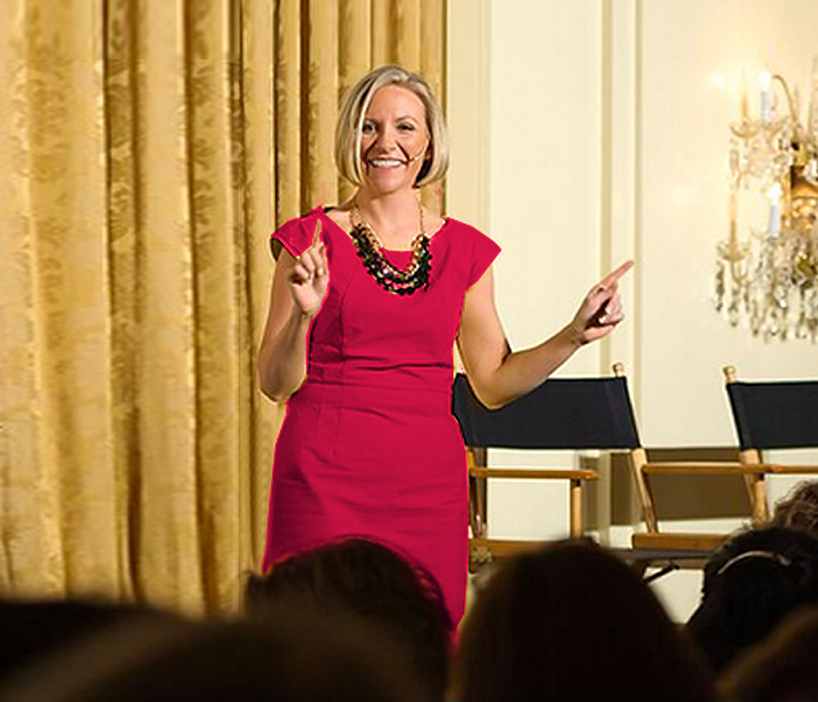Are you an Empath?
Patty explains what an empath is. There is a spiritual journey and she talks about the brain science behind it as well. Empaths often excel at helping others feel good, and they are drawn to solving the problems of others. Does that feel familiar?
In the entrepreneur world, the sales conversation can be a huge trap for empaths. Note: This shows up in life in all sorts of ways, even if you aren’t an entrepreneur.
Reframing the process is step one to eliminating the trap. Patty shares the key insights so you won’t try to solve verses offer to serve.
Don’t miss the key questions and resources she shares to help you avoid the empath’s trap.
Resources:
Transcript
(00:02) Welcome to the wealth and purpose podcast where people who are led by their hearts come to learn the secrets to creating wealth in a way that feels really good and live. They’re purposefully in the process. I’m your host, Patty Lennon. I’m an ex type-a corporate banker, turned intuitive business coach. I’m also a wife, a mom to two preteens, a professor, girl scout leader and Well, Hey, you get it. Like you are I wear, a lot of hats, whether you’re looking for inspiration to get started or strategies to get growing. I am here to help you create abundance in every area of your life in business. Welcome.
(00:40) I have a question for you. When you hear the word empath, what does it mean to you? Does it mean anything to you? In my world, the world I play in, it means a lot. We talk about it a lot because I guess I’m an empath and so once you understand what it is, you tend to look for your people. So before we get into what I want to talk about today, which is what I call the empaths trap, I want to tell you a little bit about what an empath is in case you don’t know. And the good news is if you don’t know what an empath is, but you find out that you are an empath, I bet you it makes life feel like it makes a lot more sense. So an empath is someone who feels what other people are feeling generally at an intense level and without your ability to control that.
(01:35) So, you know, it’s different when let’s say we have a kid or you know, someone we love, and we’re around them. When we open ourselves up to their emotion, we can kind of feel what they’re feeling. That’s being empathic. And that’s a beautiful thing. Empaths typically don’t have; I don’t want to say control, cause you can certainly learn to put up boundaries to other people’s emotions. But if you walk into a room, you can immediately sense what every person is thinking. If the room is heavy or if the room is heavy with dread or competition or stress, you feel it. If the room is alive with joy and/or happiness or excitement, you feel that. That’s what it means to be an empath. And typically there’s different interpretations of who exactly can call themselves an empath. But I keep a pretty wide net on it.
(02:27) I think if you feel what other people are feeling, you are an empath. And what I have experienced based on my spiritual journey, my own personal journey as an empath. And then my, what I know about brain science and psychology, empaths are not born, they’re created. I think we have, leanings towards being an empath, but typically we’ve chosen a lifetime that include a childhood included a childhood where it was necessary for us to be sensitive to the emotions of others. In order to feel safe. So basically what we did was just practice at, open ourselves up and we allowed ourselves to feel what other people were feeling so we could predict what was happening and potentially help it not to happen or modify or moderate our behavior or other behaviors in the house or where we were growing up to make things work out better.
(03:24) And I will tell you, I had, generally a pretty good childhood, and when I say this, it doesn’t mean you had some horrific childhood. It just means there were probably some pretty big emotions that were confusing for you and the adults in your home, and you did what you could as a child to figure out how to navigate that path. Now, what happens to empaths as they grow is they tend to, because they can feel into what people are feeling and they tend to be good at solving feeling related problems, meaning they help make other people feel better, and they can turn into the type of person that actually processes other people’s emotions through their own bodies. I’ve gotten to this place before, and it’s not something that I necessarily think is worth it reaching for because it’s really, it really takes a toll. And if you’re an empath, you do.
(04:23) If you’re drawn to, you know, entrepreneurship, you do tend to be drawn towards healing or service-based entrepreneurship ventures in helping other people in some way because that is how you grew up understanding your value because you’ve got good at helping other people. People affirmed that value in use. So you have not only this energetic and emotional component to empathy, but you also have a value system in your brain that has convinced you that solving other people’s problems makes you valuable or lovable or good, which puts you into this very dysfunctional cycle of solving problems that other people should be solving for themselves. Raising my hand, not preaching from the mountaintop. So in sales and we’ve been doing a lot of talking about sales both in the mastermind I run and the mastermind I belong to. So it’s been really interesting for me to take it from both viewpoints where I’m responsible from my community, but then responsible to this other community and in both places I see so many entrepreneurs struggling with what I call the empath trap in their sales conversation.
(05:38) And this is something that I struggled with years ago, and I learned to overcome it and understand it and see it, and so now I can teach it in a way that I hope is helpful. Certainly, I’m getting the feedback that it’s super helpful and there’s a few places in the sales conversation that typically trip up most people for different reasons. In particular, for empath, the empath trap is where I see that happening. And if you don’t engage in sales conversations, maybe you’re not an entrepreneur, or you’re not, involved in the sales in your business. I can tell you the empath trap doesn’t just happen in sales conversations. They happens in a lot of contexts. So even if you don’t see yourself having to engage in a sales conversation in the near future, I promise you what I have to share with you today will be helpful because even when we are in a conversation with another person making decisions, making choices, whether it’s our partner or a friend or a child or parent, we are essentially in a sales conversation.
(06:40) We have an agenda, they have an agenda, and we’re trying to get to a healthful place. We’re both parties are satisfied. Whether it’s you choosing a vacation location with your spouse or deciding what kind of electronics usage is okay for your children or whether your a adult parent, you’re seeing your parent needs some kind of assistance that maybe they’re not ready for. We have these sort of conversations that essentially they’re the same structurally as a sales conversation. So when a person engages in a sales conversation and if you don’t actually know how to have a sales conversation, like you don’t have an actual structure to it that you follow, I will tell you typically there’s an organization to it. That’s generally what I consider to be optimal. And I share that in my sales scripts. You can grab that pattylennon.com/salesscript.
(07:36) But just to give you context, I’ll run through it really quickly, which is at the beginning of the sales conversation, you want to talk about where the person’s going and where they are now and what that journey looks like for them and what they need to get there. And then through a couple of other steps, you eventually transition to the offer. And those are steps I go into in that guide I just mentioned, which are welcome to download for free. right at the beginning of that sales conversation, that journey, there’s two things that can happen for an empath that’s a little bit different than for someone who necessarily isn’t as sensitized to feeling other people’s feelings or solving their problems. So what happens is the first is they ask, you know, well, what’s going on that’s brought you to the sales conversation? And then immediately, the prospective client takes a downward spiral to talk about everything that’s wrong that they want to fix, but more focused on the downward spiral.
(08:40) And I always encourage my clients or anyone I’m guiding to start with, where does the person want to go? Because at least you’re, you’ve set the destination; you’ve made it clear like what is the end game that this person wants to get to? And that helps pull them out of that downward spiral of everything that’s wrong. So that’s a trap that a lot of people fall into, not organizing the timing on those two questions, like where do you want to go and where are you now in that order? But for an empath, it’s particularly challenging if you start with the question of what’s going on for you, because immediately, not only you’re going to hear the words, but you’re going to feel the distress. And what likely happened to you as a child is when you felt distress in other people, it was uncomfortable for you.
(09:28) So the reason you opened yourself up to these emotions to help solve these problems, it was partially just to get yourself back to feeling better. And do you still have that trigger in your brain of, Oh God, there’s distress here, I want to fix it. Now if you’re an empath and you’ve done a lot of work on that tendency. That may not happen for you, but I promise you the second part will, which is you still have an attachment to your value being, your ability to solve other people’s problems. I mean, that’s probably what brought you to your profession anyway, right? And so the empaths trap happens at that moment where the person has given you their problem, most likely, you know you can help them and probably give them some relief in that moment, and you want to get right into fixing it for them.
(10:25) That is the empath trap, that desire to fix it for them. And if you get stuck in that trap, you will never get to a point where you have what I consider to be a successful sales conversation. Now you may get the occasional sales closing at the end of that conversation, but for the most part, the actual process won’t work. And for me, if you’ve ever heard any of my previous podcasts where I talk about sales, to me a successful sales conversation is when you and the other person, your prospect understands the exact journey they want to take and what will help them get to where they want to go. And they have, they leave the call with clarity as to what that is. And if you are that solution that you have made that clear that you can and would like to help them.
(11:18) This takes the success definition off of you actually closing the sale. Because to me, if we’re service-oriented, if we are purpose-driven to feel like closing the sale is our success, it just goes against our nature. It doesn’t work for us. So when we think of successful sales conversation being helping the person to understand the journey they want to take and then advocating for them to get help either through you or someone else, is the beginning and end of our job. We can’t control them, and certainly we don’t want to manipulate them or force them or push them into saying, yes, we want guide them there, and then we trust their own judgment for their own life. But if you get stuck in fixing it for them at the beginning or trying to fix it for them, one of two things are gonna happen.
(12:05) One is you’re going to spend the entire sales conversation just in this circular conversation about their problem. If they’re not interested in actually solving it, despite what they may say, and you’ll use up a lot of energy, and they won’t be any better off than when they came on the call. The second is you actually do help them and solve some piece of the puzzle for them while they’re on the call and they have relief. Now the feeling and experience of their relief is going to be joyful for you or at least a relief for you as well. And you may have like the immediate sense that that went well, that that was a good sales conversation, but in fact, it isn’t because what you’ve done is you short stopped them from actually reaching the point of clarity of what they actually need to reach their long-term destination.
(12:54) And in fact, it’s usually happened is you’ve given them relief, which gets them to put their problem on a back shelf once again until it rears its ugly head. Maybe a day from now, maybe hours from now, maybe a month from now. And you know what’s going to happen is they’re not going to come back to you for the help. They’re going to respond to whoever is in front of their face at that time who may or may not be as legitimately a good source of a solution as you are. And really all that’s happened is you’ve given them a little bit of relief. You’ve gotten a little hit of relief, but longterm, nothing has changed. And that is the empaths trap. And then ultimately you don’t have the sale, which you don’t want. Now, I’ve said, even if you’re not engaged in sales in your business, this is the same way.
(13:44) Well, you know, if you’re talking about vacation with your partner and you’re trying to make them feel better in that conversation you’re going along with what they want and enjoying their feelings of excitement about where they want to go, that’s great. But longterm you’re going to end up on a vacation that you’re both not fully engaged in or excited about. And that’s not good for either one of you. If you’re in a conversation with a parent, you know, an aging parent and they don’t want care, but you need to get them care, and you’re going along with what makes them feel better in the moment, well, you’re potentially putting them at risk for not having what they need long term with a child. You know, it may feel like there, you know, they’re so left out because they don’t have this certain type of electronic access or phone or whatever on the game or the app and you want to solve that problem for them in the moment.
(14:41) Now I think this is a little bit easier to navigate as a parent because we get bombarded with how bad all this stuff is. So we’ve got that other voice in our heads. But you know, we, you run the risk of solving the short term problem without really dealing with the long term issues. And so how you come out of the empaths trap, the, and the, the tool is to really become conscious of your desire to solve other people’s problems. And the hit that you get from it, whether it’s a hit of relief or that feeling that you’re valuable or loved, and to start to understand that those things, you know, feeling valuable comes from being valuable, right? And if you’re going to be valuable to your clients longterm, you have to forego that short term pleasure for longterm pleasure. So you’re going to handle a little bit of pain for longterm gain and you, if you stay conscious of that, you know for a month or two of doing sales conversations and really hold yourself accountable to hold that space for them but not solve that problem?
(15:45) Eventually, you will have enough successful sales conversations, and you’ll start to build more and more clients, and you’ll see the value in holding that space for them that it will no longer feel hard or dangerous to hold the space for them without solving the problem for them. The second thing you can do is to do the inner work, and now you can do this with, with a practitioner. You can do this with a therapist with someone. Tapping is one of my favorite modalities. You can see Reiki professional. There’s lots of people that can support you as you go on this journey. Or you can simply go internally and start to ask yourself, you know, “what do I need to feel safe when someone else is unhappy, distressed, feels uncomfortable? What do I need to give myself?” Because most likely there is a small child inside of you that didn’t have the tools to feel safe when she was growing up for one reason or another and then like I told you, it doesn’t have to be a horrible childhood situation.
(16:49) I’ve seen so many empaths convince themselves their childhood was fine because objectively their childhood was fine. That doesn’t mean it was emotionally fine. It doesn’t mean you didn’t develop some emotionally dysfunctional relationships to other people’s emotions. Consciousness and really going within and finding what it is that you need to feel safe in the face of someone else. Not feeling happy can really, really help you on this journey, but certainly if you’re in the sales conversation, the one tool is to just remember your job is to hold that space for them not to solve the problem for them and in fact you are doing them the greatest service if you do so. I hope that was helpful. Hey, if you’ve got any questions, definitely email me patty@pattylennon.com. I always love to hear from you, and of course, if you want to get the full sales script, just go to https://www.pattylennon.com/salesscript and I’ll go through a whole structure to a sales conversation will help you have it from a service focus and very lovingly. Thank you so much for listening. I hope you have a fantastic day.
Hey, thanks for listening. And if you know someone who needs to hear this message, please share this podcast with them. And if you’re feeling really generous, I’d love for you to leave us a review on your favorite podcast app. It helps us reach many more people and it fills my heart with so much joy when I hear what you had to say about what you heard. I am cheering for your success, have an amazing day.
Thanks for being here and reading my message. I want you to stay connected with me so that I can share all future communications with you.
Please enter your name and email below to join my community.
Success! Thank you for joining. You'll receive a confirmation in a while.
















